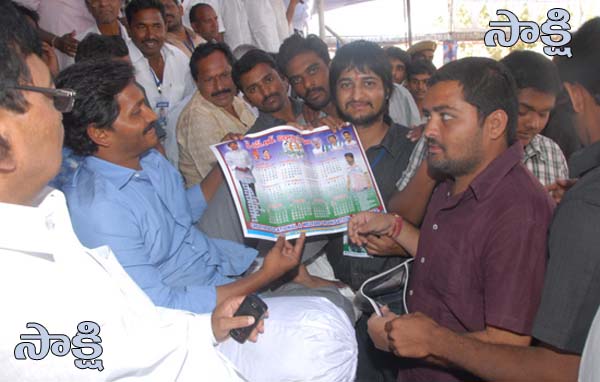A false campaign had been launched that religions other than Hinduism were being propagated on the hills. Not a single non-Hindu activity had come to light.
An ordinance was promulgated earlier by the Government on May 22 prohibiting the propagation of any religion other than what was traditionally practised in places of worship. As a follow-up, the Government notified the places of worship covered by the ordinance -- the kshetram area, 10 theerthams within the Tirumala Tirupati Devasthanams (TTD) limits and 20 temples elsewhere in the State.
HYDERABAD: The temple town of Tirumala, the abode of Lord Venkateswara, and the seven hills surrounding it have been accorded special status by the State Government by declaring them a holy place. Through an order, the Government said the "Tirumala Divya Kshetram", the name of the holy place, shall comprise the seven hills of Seshadri, Garudadri, Venkatadri, Narayanadri, Vrishabhadri, Vrishadri and Anjanadri, right from the foothills, the holy theerthams and the main shrine. Roads and footpaths leading up to the temple, including the first and second ghat roads between Tirupati and Tirumala, and the motorable road from Tirumala to Papavinasanam were declared part of the kshetram.
Ordinance promulgated
An ordinance was promulgated earlier by the Government on May 22 prohibiting the propagation of any religion other than what was traditionally practised in places of worship. As a follow-up, the Government notified the places of worship covered by the ordinance -- the kshetram area, 10 theerthams within the Tirumala Tirupati Devasthanams (TTD) limits and 20 temples elsewhere in the State.
The order designated the TTD Executive Officer as in-charge of the civic administration of the hills area. He will have the authority normally exercised by a sarpanch or the executive authority under the Panchayat Raj Act. No elections or political activity shall be permitted.
Chief Minister Y.S. Rajasekhara Reddy said at a news conference here on Friday that the objective was to ensure sanctity of the hills in the wake of reports that religions other than Hinduism were being propagated there. The Government did not want conflict of religions while ensuring religious freedom as a fundamental right of people.
`False campaign'
TTD Chairman B. Karunakar Reddy said a false campaign had been launched that religions other than Hinduism were being propagated on the hills. Not a single non-Hindu activity had come to light.
I.V. Subba Rao, Principal Secretary, Revenue (Endowments), said the Government had effectively dealt with propaganda to play down the significance of the seven hills of Tirumala. Using satellite imagery, it had disproved claims that there were only two hills in the area and not seven.
YSR had special attachment for Tirumala:
The special attachment that the Chief Minister Y.S. Rajasekhara Reddy had for Tirumala needs no mention. He had visited Tirupati on over two dozen occasions and motored up the Tirumala on almost all the times to offer prayers to Lord Venkateswara.
Also, he successfully transformed the TTD, which was till then a religious body, into a major delivery channel to achieve many of the government’s social obligations.
Even in the height of proselytization charges that rocked the Tirumala in 2005-06, the YSR regime left no stone unturned to drive home the message loud and clear that it would not tolerate any delinquency in bringing the accused to book.
When a Government Order issued in early 2006 was misconstrued as limiting the extent of the seven hills to only two, which created a furore across the country, Y.S.Rajasekhara Reddy came forward to put the record straight.
After laying the foundation for SV Vedic University here in August 2006, he announced that Tirumala would have ‘all the seven hills’ and the area of 10 1/3 sq. miles around the temple would continue to be under the control of the TTD.
YSR got several projects inaugurated at Tirumala, keeping in view the growing demands of pilgrims. Lakshmi Narasimha (Tarigonda), Gandi Anjaneya (Kadapa), Varadaraja (Nagari) and Lakshmi Venkateswara (Devuni Kadapa) temples languishing for funds were brought under the TTD roof for better maintenance. This apart, he sanctioned Rs.2,000 per month for maintenance of other small temples.
Schemes launched‘Kalyanamasthu’, the mass marriage programme, became an instant hit where weddings were performed to the poor brides and grooms with blessings of Lord Balaji. Performing the Lord’s celestial wedding (Kalyanotsavam) in metro cities, slums and Dalitwadas was another novel idea to reach out the glory of Lord Venkateswara as well as to get back the ‘excluded’ sections into the fold of Hinduism.
‘Ayushmanbhava’, a scheme to provide life insurance cover to priests and pundits in the 65-75 years age group, was inaugurated in February this year. ‘Satha Kundatmaka Homam’ was performed in Chennai and Hyderabad to propitiate the rain god.
Under ‘Geetha Govindam’, copies of ‘Bhagavadgita’ were distributed to prisoners to bring repentance in them and make them useful to the society.
‘Padmavathi Ammavari Pustaka Prasadam’ was a TTD-funded project to distribute textbooks to all the poor students of State-run schools. ‘Sravanam’ is another TTD-run scheme aimed at identifying aural disability in infants and providing early intervention to treat the malady.




















































